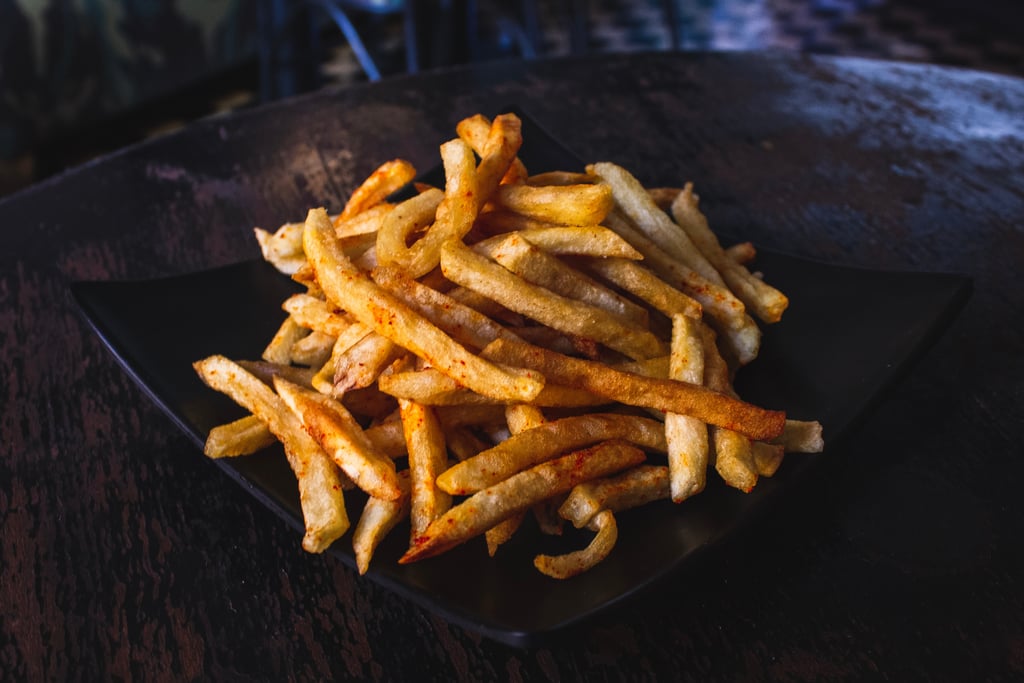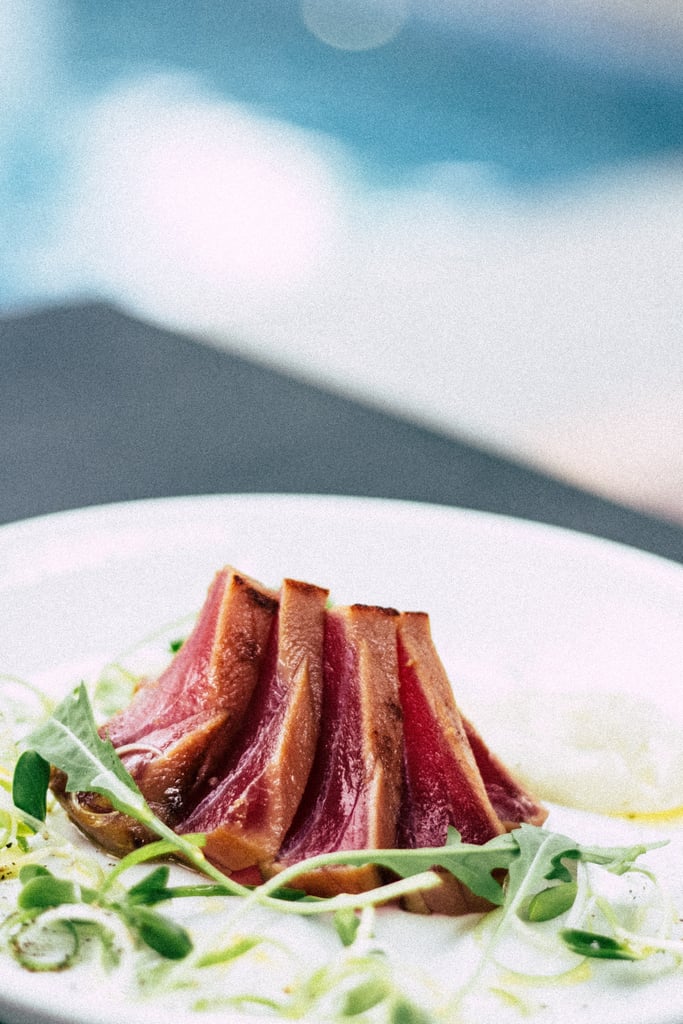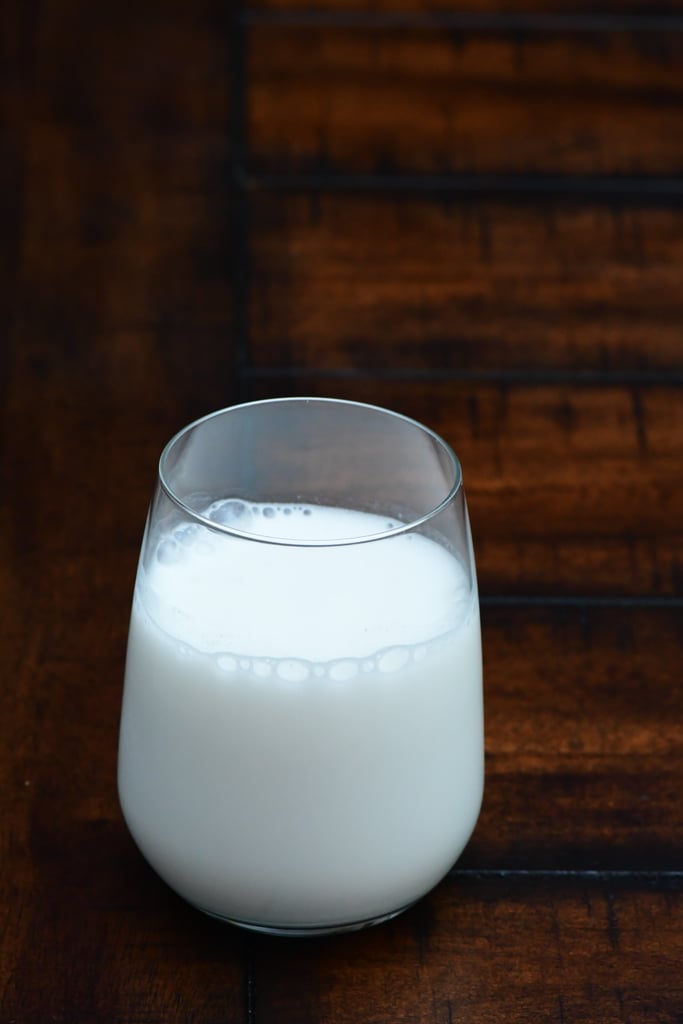We all know food plays a huge role in our overall health [1] and well-being, serving as fuel and energy for our day-to-day activities and brain function. But what you may not know is the effect food can have on your fertility [2]. If you're trying to get pregnant, or even thinking about having a baby [3] one day, it may be time to start paying extra close attention to what you and your partner put in your bodies. According to the American Pregnancy Association, preconception nutrition can play a huge role for fertility [4] in both men and women, and avoiding certain foods during your preconception period may help you improve your chances of getting pregnant [5]. We've asked some nutritionists and fertility coaches to provide us with the top foods to avoid when trying to conceive, so keep reading to see them all.
Trans Fats
A 2007 study published in The American Journal of Clinical Nutrition identified an increased risk for infertility in women who consumed more trans fats [7] compared to polyunsaturated and monounsaturated. In fact, women who consumed more trans fats than monounsaturated fats had double the risk of ovulatory infertility. Trans fats can be found in foods like potato chips, fast food, and prepackaged sweets like cakes and pies.
Nancy Weiss, a fertility coach with Grateful Life Wellness [8], told POPSUGAR that women should "try to opt for whole foods that are minimally processed. It's OK to indulge, but be aware of the potential hidden amounts of trans fats in food."
Coffee
Consuming foods and beverages high in caffeine should be done in moderation during preconception and pregnancy. Rachel Engelhart, MA, RD, LPC, told POPSUGAR: "Women trying to get pregnant should consider limiting their coffee intake to 200 mg or less [9] (i.e. 6 to 8 ounces of coffee) per day. There is some conflicting information around this, but most healthcare specialists recommend avoiding excessive amounts of caffeine to circumvent any adverse effects on fertility."
Ahi Tuna
The American College of Obstetricians and Gynecologists advises women to consume 6 ounces or less of fish with high mercury concentration [10], like tuna, while trying to get pregnant or if already pregnant. But before you start avoiding seafood restaurants all together, know it's OK to consume 2-3 servings of low mercury fish per week like catfish, salmon, and tilapia.
Julie Wallace, RDN, LD, CSP, told POPSUGAR that eating a controlled amount of seafood is actually "a great way for mom and baby to get in protein, omega 3 fatty acids, and trace nutrients such as iodine."
Low Fat Dairy
A 2007 Oxford Academic study looking at high intake of low fat dairy showed an increased risk in infertility [11]. Nutritionist and dietician Mor Levy Volner [12], R.D.N., I.B.C.L.C., M.S., works with a lot of new moms and told POPSUGAR "dairy is the number one food I will remove [from their diets] that has the most impact with regards to my clients' fertility. Usually the first thing I recommend doing is eliminating dairy protein from their diet [13]. I've seen the best results from this simple adjustment."
Alcohol
Although you don't need to shy away from alcohol altogether, Jessica Hazen, MS, RDN, LD, IBCLC with Portland Pediatric and Family Nutrition [14], explained to POPSUGAR that "drinking more than two alcoholic beverages a day can deplete your body of essential nutrients needed to conceive and prepare your body to grow a baby. Excessive alcohol intake appears to cause oxidative stress and overall inflammation in the body, which can not only negatively affect sperm production in males, but also one's overall fertility and ability to conceive."
It's also important for a woman to limit alcohol during pre-conception, as you're not always aware when you become pregnant and you want to limit negative consequences to the baby during early pregnancy.




